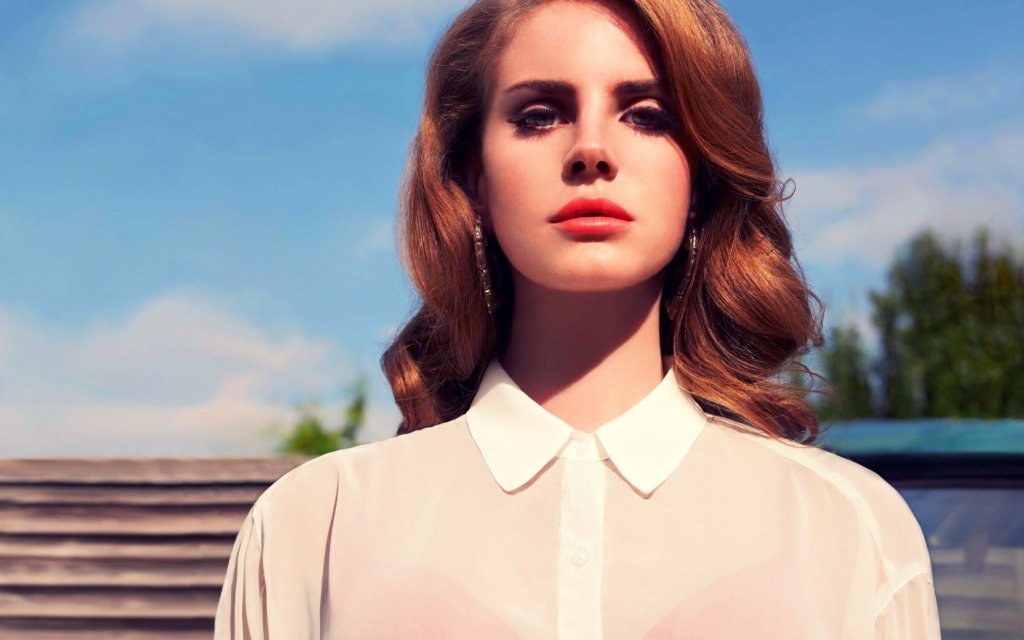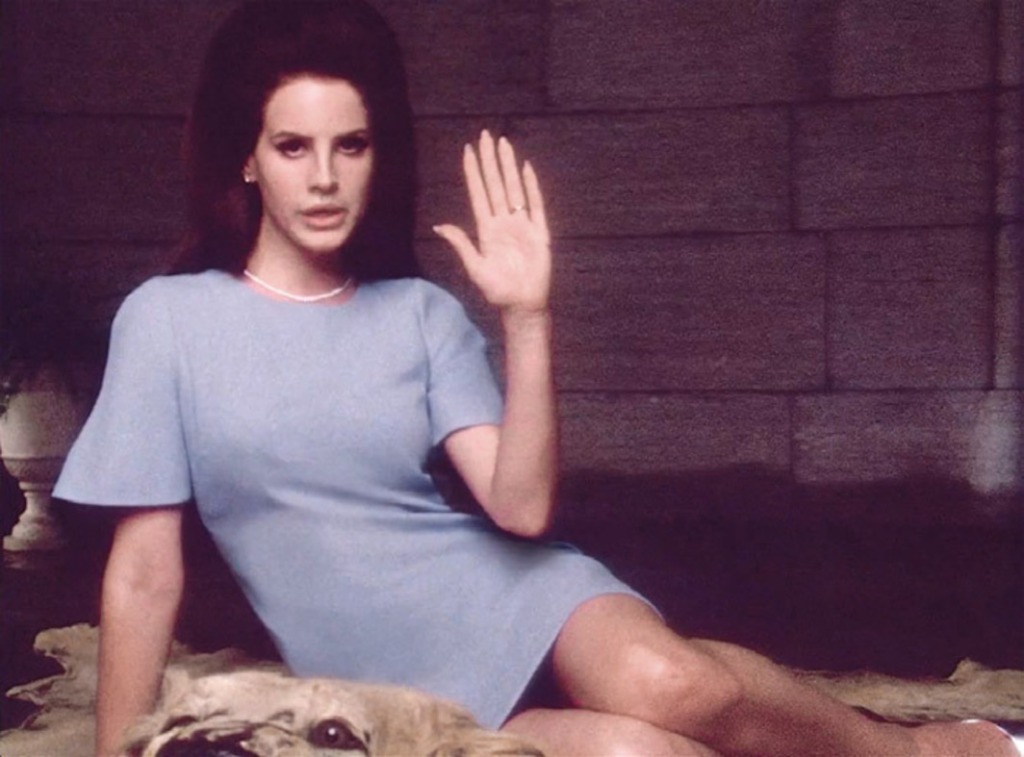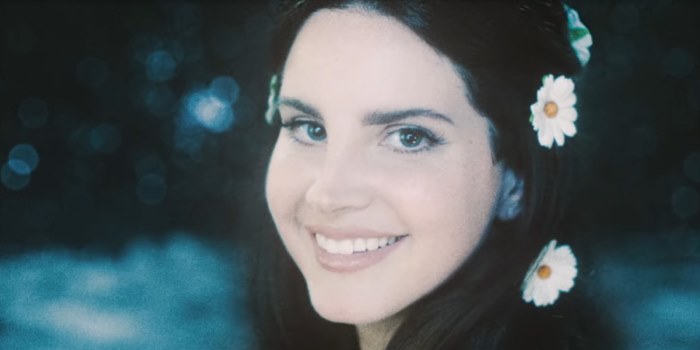
Perhaps ironically, the year we launched Pop Lifer was not a great pop year. Occasionally, music seems to get stuck like an old scratched vinyl record, and 2012 was a textbook example. For the first time in pop history, the year’s best selling album worldwide (Adele’s world-bestriding colossus “21”) was unchanged from the previous year. This was closely followed by not one but two mediocre records by One Direction, with Mumford & Sons, Justin Bieber and Maroon 5 awkwardly filling up the rest of the top ten.
What rescued the year from total forgettability was the emergence of two of the Millennium’s most arresting and unlikely talents, in the form of Frank Ocean and Lana Del Rey. Just like Pop Lifer, each of them had done creative work under their birth names in the past, but really made their mark in 2012 using pseudonyms. Unlike Pop Lifer, however, Ocean and Del Rey brought with them two of the most distinctive and compelling albums heard in years (“Channel Orange” and “Born To Die”), while generating a thousand blogs on sexual politics in the 21st century (one of them being our own debut).
In fact, “Born To Die” was released ten years ago this very week, which seems a good opportunity to reflect on LDR’s legacy. The first thing that’s surprising about that sentence is that almost everyone would now agree that Del Rey does indeed have a legacy to reflect on. When “Born To Die” first landed, the world seemed to instantly divide into two camps: those who thought her rapid ascent to fame was a chimera built on hype and artifice, and those who thought that her handful of luminous instant-classic songs were the true secret of her success. Pop Lifer was firmly in the latter camp… but even we wouldn’t have expected what an enduring and significant musical figure Del Rey has become.

Speaking honestly, the Del Rey of “Born To Die” didn’t necessarily sound like the kind of artist who would stick around. It wasn’t the “live fast, die young, leave a beautiful corpse” nihilism of the lyrics and album title, but the sense that even within the twelve tracks of her debut her formula might already be wearing thin. For every seething melodrama like the title track there was a dreary retread like “Dark Paradise”, while love songs as unerringly graceful as “Video Games” were followed by more lead-footed fare like “Million Dollar Man.”
It also seemed very possible that her lurid lyrics of retro Americana and decadent Hollywood glamour might paint Del Rey into a corner. Like early Suede, she created an idiosyncratic universe of her own, expressed through its own lexicon. Where Brett Anderson summoned a world he would later admit could be mocked as all “nuclear skies” and “pigs by motorways”, Del Rey conjured up a realm of black-hearted sugar daddies, end-of-the-world kisses, doomed intoxicated romances, and sad girls in red dresses. It wasn’t hard to imagine the novelty quickly hardening into self-parody.
Two paths forward seemed likely, to us at least. The first would be that LDR would rush back to capitalise on her unexpected success with more of the same, to diminishing returns (think Scissor Sisters or Franz Ferdinand). The second would be that she would try to reinvent herself, with the very real possibility that she would spend years slaving away in a studio and come back with some embarrassing hip hop or electronica disaster which would disappear without trace, taking her with it.

Not for the first or the last time, LDR did something unexpected. “Cruel World”, the first song on her follow up album, didn’t just return to the same universe but expanded it over a bruising and bewitching 6 and a half minutes. This wasn’t diminishing returns, this was doubling down… and winning. The song found Del Rey still in her red party dress while the Bourbon flowed and men waved Bibles and guns around. Nothing had changed except for LDR’s confidence and the depth of her songwriting. The result – the bruised, bloody, beautiful “Ultraviolence” – was her first masterpiece. While it didn’t quite match “Born To Die”s sales, it silenced her snipers and established her firmly as what Bruce Springsteen would call “simply one of the best songwriters…. She just creates a world of her own and invites you in.”
And what a world Del Rey has forged, guided by her ever-growing confidence and built on the foundations of an extraordinary songbook. Another unexpected Del Rey quality has been her work ethic. She might sing as if she spent her entire life hanging around bars, picking up tattooed men, and being driven around on Harley Davidsons, but it soon became obvious that the place Del Rey really liked spending time was the studio. Her only rival when it comes to work rate is Taylor Swift, who has also released five records in seven years, and who recently called Lana “the most influential artist in pop”.
Del Rey detractors like to say that her music often sounds the same, and it’s true that – sonically speaking – a breathily melancholic piano ballad like 2022’s “Wildflower Wildfire” could easily slip onto “Born To Die” with a few hip hop bells and whistles dropped on top. But it’s not true that Del Rey hasn’t changed. Del Rey once bizarrely denied that she had ever adopted personas, which was a bit difficult to accept given that a) she issued this denial under her flamboyant nom de plume and b) it was utterly contradicted by all of her early videos and songs, which often seemed to be a restless attempt to channel not an all-American girl but all American girls, from Hollywood starlets to biker chicks to Jackie O. Yet over time these personas have indeed dropped away and revealed a much more honest, thoughtful and naked songwriter, closer to Joni Mitchell confessionals than Madonna self mythologising.

There have been costs to her evolution as a songwriter. Some of the cheaper thrills of her earlier records are gone, and we say this as people who greatly respect cheap thrills. LDR fans don’t get giddy, narcotic romps like “Off To The Races” any more, nor songs as unsettling and visceral as “Ultraviolence”. Perhaps as a result, the bright explosion of Del Rey’s early fame has faded a little over the last decade, leaving her closer to the cult singer you suspect she herself always expected to be.
But the fruits of this evolution have been considerable. To the relief of many fans, Del Rey has in recent years recognised and resisted her previous weakness for glamourising dysfunctional and violent relationships. More importantly, as she has delved deeper inside herself, she has also become increasingly playful. The first sign of this was when, to the shock of the entire world, she revealed that she could smile 1 minute and 12 seconds into the video for 2017’s “Love”. But it was cemented on 2019’s “Norman Fucking Rockwell!”, which was full of mischief and daring, both lyrically (the opening lines to the title track becoming instantly famous) and musically (who would ever have thought Del Rey would one day helm a ten minute dreampop reverie with long passages where her voice would all but disappear in guitar fuzz and scuzz?).

“Norman Fucking Rockwell!” went on to become – by some distance -the most celebrated record of Del Rey’s career so far. Grammy nominations were swiftly followed by it being named album of the year by publications as diverse as Slant and The Guardian. Many of the same music critics who had sniffed about Del Rey’s talent 7 years earlier were forced to eat their words.
Del Rey is a complicated and contradictory figure and so it shouldn’t surprise us that she didn’t take a well-deserved break to bask in the success of “Norman Fucking Rockwell!” Just as she was being rewarded for all her hard work with the first unanimously glowing reviews of her career, she embarked on a self-sabotaging series of retaliations and antagonisms against various journalists on social media. She may also have let her prolific instincts get the best of her. Despite several moments of piercing beauty, her two albums of 2021 did sound – for the first time since her debut album – like she might be stretching her talent a little bit thin.
But before you count her out, remember what happened right after “Born To Die”. If there’s one thing we should have learnt from Del Rey’s glorious ten-year career, it’s that you should never, ever underestimate her.
NEIL
PS: coming soon, we’re going to tracklist Lana Del Rey’s “Best Of” before she does.
